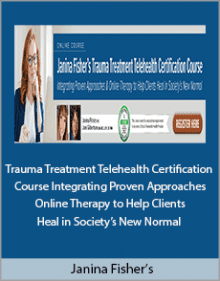Craig J. Bryan and David A. Jobes and Stacey Freedenthal – Essentials of Treating and Preventing Suicide
Original price was: $299.00.$107.00Current price is: $107.00.
In this groundbreaking online course, you’ll get data-driven tools and strategies that will guide you in effectively treating the suicidal person — from case conceptualization to assessment and beyond.
- Description
- Reviews (0)
- More Products
Description
Craig J. Bryan and David A. Jobes and Stacey Freedenthal – Essentials of Treating and Preventing Suicide: Perspectives from the Experts
Sale Page: https://catalog.pesi.com/sales/bh_c_001386_essentialstreatingpreventingsuicide_organic-137922
Suicide. It’s one of the most stress-inducing topics you deal with in therapy, and most clinicians receive little formal training on this important issue.
But the fact is, almost every therapist will treat clients who are struggling with suicide…
…so you need to know what to do when your clients have suicidal ideation or a history of attempts.
Fortunately, there are new evidence-based models that were specifically designed to help clients move past suicidality.
Now in this unique online course, you’ll get special access to experience these strategies for yourself and learn the tools and knowledge you need to be effective in treating and preventing suicide.
In this groundbreaking online course, you’ll get data-driven tools and strategies that will guide you in effectively treating the suicidal person — from case conceptualization to assessment and beyond.
You’ll gain the confidence you need to make the best decisions for even the most difficult clinical situations, such as:
- Does my client really need to be hospitalized?
- How do I do an assessment that actually helps my client rather than feels like an interrogation?
- How do I know whether the level of suicidality is an immediate threat?
- What do I do if my client shares that she/he has a suicide plan?
- What do I do if my client attempts suicide during therapy, and does this mean that the therapy is ineffective?
- How can I be effective AND keep my practice safe from legal problems?
- And much more!
By the end of this advanced skills training, you will learn dozens of proven communication strategies and methods that will help your clients feel safe to open up to you about their thoughts, feelings, and experiences — no matter how severe their pain.
Here’s What You’ll Get with This Course
- How the 7-Part Map: Suicide Dimensions for Treatment Planning enhances your ability to collaborate with clients
- Why normalizing the client’s experience is critical to building the therapeutic alliance
- The importance of directly asking clients about suicidal thoughts
- Why assessment must be tied into the treatment plan
- How empathy helps to reduce shame
Featuring Today’s Leaders in Suicide Treatment…
Craig J. Bryan, PsyD, ABPP, is Executive Director of the National Center for Veterans Studies and Associate Professor in the Department of Psychology and the Department of Psychiatry at the University of Utah. He is an associate editor of the journal Suicide and Life-Threatening Behavior and previously served on the board of directors of the American Association of Suicidology.
David A. Jobes, Ph.D., ABPP, is a Professor of psychology and Associate Director of Clinical Training, and Director of the Suicide Prevention Lab at The Catholic University of America. His research and writing on suicide has produced well over 150 peer-reviewed publications (including six books on clinical suicidology).
Stacey Freedenthal, PhD, LCSW, is an associate professor at the University of Denver Graduate School of Social Work. Her psychotherapy and consulting practice focuses on suicide assessment and intervention.
John Sommers-Flanagan, PhD, is a professor of counselor education at the University of Montana. In addition to teaching, research, and supervision, John also has a small independent practice. Previously he was the mental health consultant for Trapper Creek Job Corps (2003-2014), served as executive director of Families First Parenting Programs (1995 to 2003), and was co-host of a radio talk-show on Montana Public Radio titled, “What is it with Men?”
Anne Marie “Nancy” Wheeler, JD, is an attorney licensed in Maryland and the District of Columbia; she has extensive experience with counselors, psychiatrists and the broader field of mental health. For over 30 years, she managed risk management consultation services for the American Counseling Association and the American Psychiatric Association.
Burt Bertram, LMFT is a counselor, consultant, author and professor. His professional efforts focus on assisting individuals, couples, families and workgroups to productively identify, understand and address the issues that are influencing or shaping their lives. Dr. Bertram is a relationship-oriented therapist and consultant. He believes individuals come to understand themselves and grow best when in the context of others.
Janina Fisher, Ph.D., is a licensed clinical psychologist and instructor at the Trauma Center, founded by Bessel van der Kolk, MD. A faculty member of the Sensorimotor Psychotherapy Institute, an EMDR International Association consultant, past president of the New England Society for the Treatment of Trauma and Dissociation, and former instructor, Harvard Medical School, Dr. Fisher lectures nationally and internationally on the integration of the neurobiological research and new trauma treatment paradigms into traditional psychotherapies.
Rita A. Schulte, LPC, specializes in the treatment of depression and suicidality, grief and loss issues, anxiety, relationship problems, and eating disorders. Rita’s beloved husband died of suicide in 2013, and she speaks candidly about her loss in the hope of helping others to heal. A prolific writer and book author, Rita is also the creator and host of Heartline Radio where she talks with counselors, authors and everyday people looking for advice on moving through the difficulties of life.
Be the first to review “Craig J. Bryan and David A. Jobes and Stacey Freedenthal – Essentials of Treating and Preventing Suicide”
You must be logged in to post a review.
-
Patrick Riddle – Investor Profits On Demand
Original price was: $497.00.$62.00Current price is: $62.00. Buy now -
Margaret Lynch – Tapping Into Wealth Coach Training Program 2019
Original price was: $4,997.00.$127.00Current price is: $127.00. Buy now -
Brittany Lynch – Build A 6 Figure Lifestyle Brand
Original price was: $497.00.$77.00Current price is: $77.00. Buy now -
Ted Nicholas – Winning Unlimited New Customers
Original price was: $47.00.$18.00Current price is: $18.00. Buy now -
Kathrin Zenkina – Epically Aligned 2022 Bootcamp
Original price was: $222.00.$27.00Current price is: $27.00. Buy now





















Reviews
There are no reviews yet.